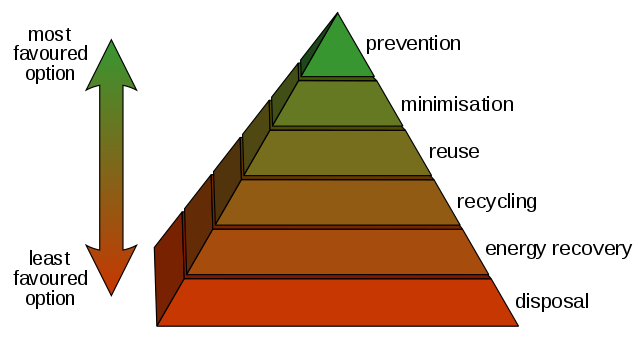A very big concern that huge businesses face during their run is the management of waste. Large amounts of different kinds of waste are produced in hotels, restaurants and other businesses, but managing it well keeping in mind the sanitation, public health, segregation of different kinds of waste, environmental concerns and shortage of waste landfills can be very tricky to deal with. Especially keeping in mind the environmental repercussions of excessive waste on our planet. It is very important to remember that proper disposal and management of waste is key to a functioning organisation.
Understanding Waste Management
If you want to be more eco-friendly and improve your organisation, you should first understand the basics of waste management. It involves the following steps:
1) Assess the data that you have.
2) Identify what waste exists and what the type is.
3) Identify the processes that occur in your business.
4) And finally, see if you can build and adopt waste management consultant practices that are in alignment with these data.

Sources of Waste
Due to a lack of attention, management and planning, a lot of hotels are generating a huge amount of waste. And the more waste produced, the larger the carbon footprint it leaves which is quite harmful to the ecosystem. According to the International Hotel Environmental Initiative 2002, on average, a hotel guest produces about 1 kilogram of waste each day. That number could be much larger today when consumerism and commercial goods are on peak. While this can also be observed in regular homes, many hotels are adding to the wastes as they do not have an effective method of handling their waste. Generally, hotels pay twice the amount for their waste, first the packaging and then its disposal. The hotel industry has different sources of waste generating both wet and dry waste. The wet waste is mostly food waste which could consist of more than 50% of the total waste. It is mostly solid waste. The food waste generated in hotels is quite high in percentage as compared to other sources such as shops, supermarkets and other commercial establishments. It is a common practice to use this waste to generate energy. In this case, the idea is to convert the waste into electricity which is a great way to reduce the usage of waste in our society. To mitigate the threat of potential contamination, most hotel rooms in India use HEPA bags, which are odour-neutralising. These bags provide a barrier to prevent any particulates or toxic chemicals from entering the room. In addition, as an added measure, a ‘flushable’ towel or robe is made available for every guest. These towels are free of micro-plastics.
The 5Rs Transition Strategy
A mindset or strategy has to be in place when planning to manage waste. And one such strategy starts in a practical and eco-friendly way of looking at waste. The 5Rs Transition Strategy is rooted in sustainability and considers what is good for the environment.
Refuse: Avoid using disposable materials and items that generate toxic waste in the first place. Reduce: Create as little waste as possible. Reuse: Create a system in place which can sort through the waste and segregate the kind that could be reused. For example, many resorts have water purification systems that clean bath water or kitchen water for gardening purposes. Recycle: It is well known that almost every big corporation has accepted a recycling program into its working systems that sort the plastic, glass, paper, etc waste and send them for recycling. Restore: It is best to restore goods for other uses or services when they can be restored.
Issues Faced While Managing Waste
Some issues that the hotel industry in India faces while managing waste are:
1. Insufficient knowledge about the practice of waste management.
2. Reduced number of facilities for waste disposal or treatment.
3. Variations in waste and types of waste arising based on seasons of tourism.
4. High population density.
5. Limited land to locate landfills and other waste treatment infrastructure. 6. Difficulties in achieving economies of scale.
Due to the strict regulations and strict controls of regulatory authorities like the Ministry of Environment, Water and Forests, discharging of liquids like detergents, shampoo, soap, shampoos, and other potentially harmful chemicals in hotel rooms and swimming pools is prohibited.
Because of the size and volume of the organisation, it becomes extremely difficult for them to find the time to manage their waste correctly and properly, hence all the effort they put into saving money for themselves goes into waste management . This is why organisations that have a well-functioning system of waste management consultant, have a specialised company like HPG Consulting, do the work instead. This helps them in various ways like:
1. Lesser waste.
2. Proper segregation and disposal of waste.
3. Comparatively cheaper costs.
4. Smaller environmental footprint by the organisation.
5. Seamless process without any need for additional studying or work on the matter.
Citations:
1. (PDF) Reduction and Management of Waste in Hotel Industries (PDF) Reduction and Management of Waste in Hotel Industries (2021). Available at: https://www.researchgate.net/publication/318882129_Reduction_and_Management_of_Waste_in_Hotel_Industries (Accessed: 7 August 2021).
2. Curry, R. 2012. The Composition of Waste Disposed of by the UK Hospitality Industry (No. RES093-001). Waste and Resources Action Programme (WRAP), United Kingdom.
3. (2021). Retrieved 7 August 2021, from http://www.ijsrp.org/research-paper-0916/ijsrp-p5792.pdf
4. Ezeah, Chukwunonye & Fazakerley, Jak & Byrne, Timothy. (2015). Tourism Waste Management in the European Union: Lessons Learned from Four Popular EU Tourist Destinations. American Journal of Climate Change. 4. 431-445. 10.4236/ajcc.2015.45035.